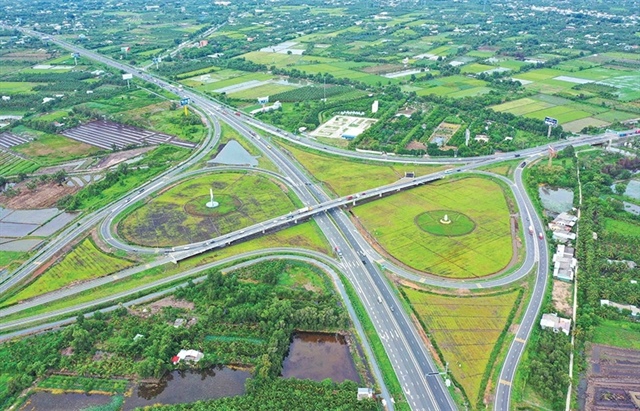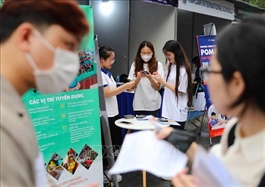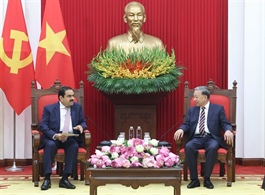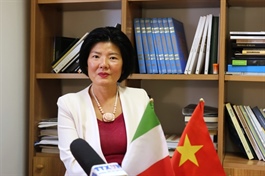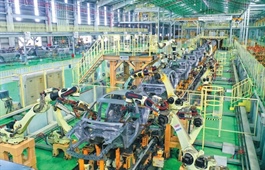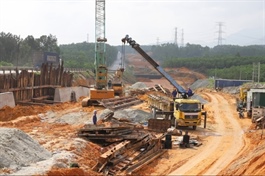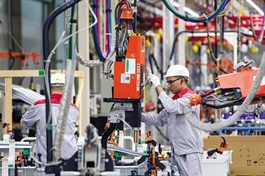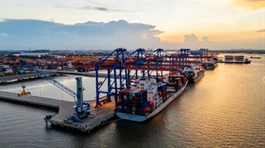Vietnam tightens FDI approvals with inspection regulations on outdated technology
Vietnam tightens FDI approvals with inspection regulations on outdated technology
From 2025, outdated technology is no longer be tolerated in investment projects, compelling foreign-invested enterprises in Vietnam to meet higher standards in environmental and technological compliance.
Foreign direct investment (FDI) inflows to Vietnam continued their upward trajectory in the first half of 2025, reaching $21.51 billion, a sharp increase of 32.6 per cent on-year. Notably, FDI disbursements surged to $11.72 billion, the highest six-month figure recorded between 2021 and 2025, reflecting sustained momentum in bringing renewed capital into action.
However, Vietnam is increasingly facing a critical dilemma: while capital inflows grow, much of the transferred technology remains outdated. Despite long-standing hopes that FDI would help modernise the domestic industry, only 5 per cent of foreign-invested enterprises (FIEs) in Vietnam currently employ high-tech solutions, according to Deputy Minister of Finance Do Thanh Trung, speaking at the Vietnam Connect Forum 2025. The remaining 95 per cent rely on medium-level or outdated technologies – posing serious challenges to the country's climate ambitions and its pledge to achieve net-zero emissions by 2050.
|
In a decisive move to tighten the standards for foreign investment, Prime Minister Pham Minh Chinh signed Decision No.29/2023/QD-TTg, which came into force on February 15, 2024. As a strategic complement to Decision No.18/2019/QD-TTg – which regulates the importation of used machinery and technological lines – this latest directive strengthens the government's commitment to sustainable economic growth.
Decision 29 was forced in response to the growing need for a well-defined mechanism to identify projects that employ obsolete, environmentally hazardous, or resource-intensive technologies. These projects are prohibited from making amendments or seeking extensions to their operational terms, in alignment with the provisions set forth under the Law on Investment 2020.
To proceed with licence extensions, investors must prove that their projects do not rely on outdated technologies. A valid inspection certificate for machinery and technological lines is a mandatory, legally binding document in this process. Valid for 12 months, it forms the legal basis for authorities to assess a project's technological integrity. Without it, applications for licence amendment or extension will be denied.
To ensure accurate assessments, the prime minister has regulated strict criteria for appointing qualified conformity assessment bodies. The Ministry of Science and Technology (MoST) is responsible for these appointments, and to date, only two organisations have been designated: Vinacontrol Group (Vinacontrol) and the Quality Assurance and Testing Center 3 (QUATEST 3).
Established in 1957, Vinacontrol is Vietnam's longest-operating conformity assessment body, formed as the Department of Import-Export Goods Inspection under the former Ministry of Commerce (now the Ministry of Industry and Trade). With a national network including 40 offices and accredited laboratories, the organisation possesses extensive operational coverage and the institutional capacity to conduct large-scale, multi-regional inspections. With extensive experience in major national and international projects, and deep expertise across industrial assessment, evaluation, and valuation of machinery, equipment, and technology lines, Vinacontrol has become the trusted name of choice.
In addition to its core inspection mandate, Vinacontrol offers regulatory and technical consulting to help investors meet compliance requirements, respond to authorities, and align documentation with legal and environmental standards. As regulations tighten on outdated or resource-heavy technologies, this support is vital for projects seeking licence extensions.
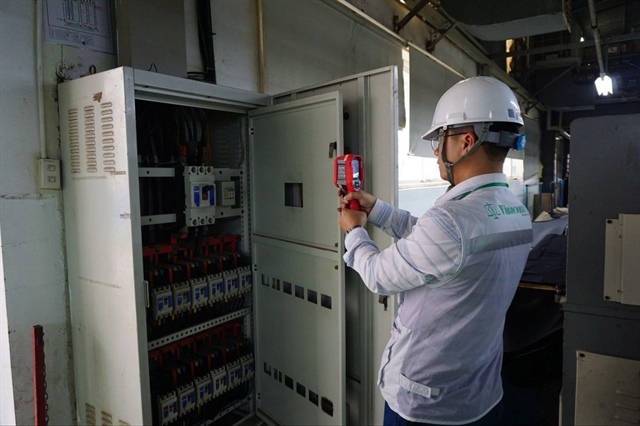
An assessment of outdated machinery and technological lines being carried out |
Alongside Vinacontrol, the MoST has also designated QUATEST 3 as a qualified organisation to perform inspection under the new regulatory framework. Operating under the Commission for Standards, Metrology and Quality, QUATEST 3 is a state-affiliated sci-tech institution that provides inspection, testing, calibration, and certification services in accordance with national standards and the regulatory mandates of various ministries.
Located in Ho Chi Minh City, QUATEST 3 offers valuable support to companies operating in southern Vietnam. In addition to its domestic functions, QUATEST 3 has sought for collaboration with other institutes both regionally and globally. As a state-affiliated organisation, the centre benefits from favourable financial support and policy backing, which has enabled the development of advanced testing capabilities across diverse technical domains.
Upon obtaining an inspection certificate, investors must supplement their technology determination dossier with two additional documents: (i) a request form for technology assessment and (ii) a detailed description of the current technology intended for use in the undertaking.
Following the submission of a completed application, the presiding authority shall, within three working days, engage environmental regulatory bodies and the relevant specialised management agency for coordination. These authorities are required to provide a written response within 15 working days, which may be extended to 20 working days for projects of significant scale or involving complex technologies. Upon receipt of all necessary evaluations, the presiding authority shall, within five working days, issue an official written determination regarding the technological evolution of the venture.
Taking into account the additional time required for the designated organisation to inspect machinery and technological lines used in a project, the entire assessment process may take up to two months or longer, depending on the complexity of the technology, the enterprise's readiness in preparing documentation, and the responsiveness of the appointed inspection entity, particularly in ensuring timely coordination across various localities.
While Decision 29 introduces stricter regulatory thresholds, it opens the door for foreign investors to stand out. Those who comply early will gain smoother access to licensing and position themselves as frontrunners in Vietnam's transition towards high-tech, sustainable manufacturing. In today's green-driven market, compliance is no longer a burden – it is a competitive advantage.
- 08:30 31/07/2025





